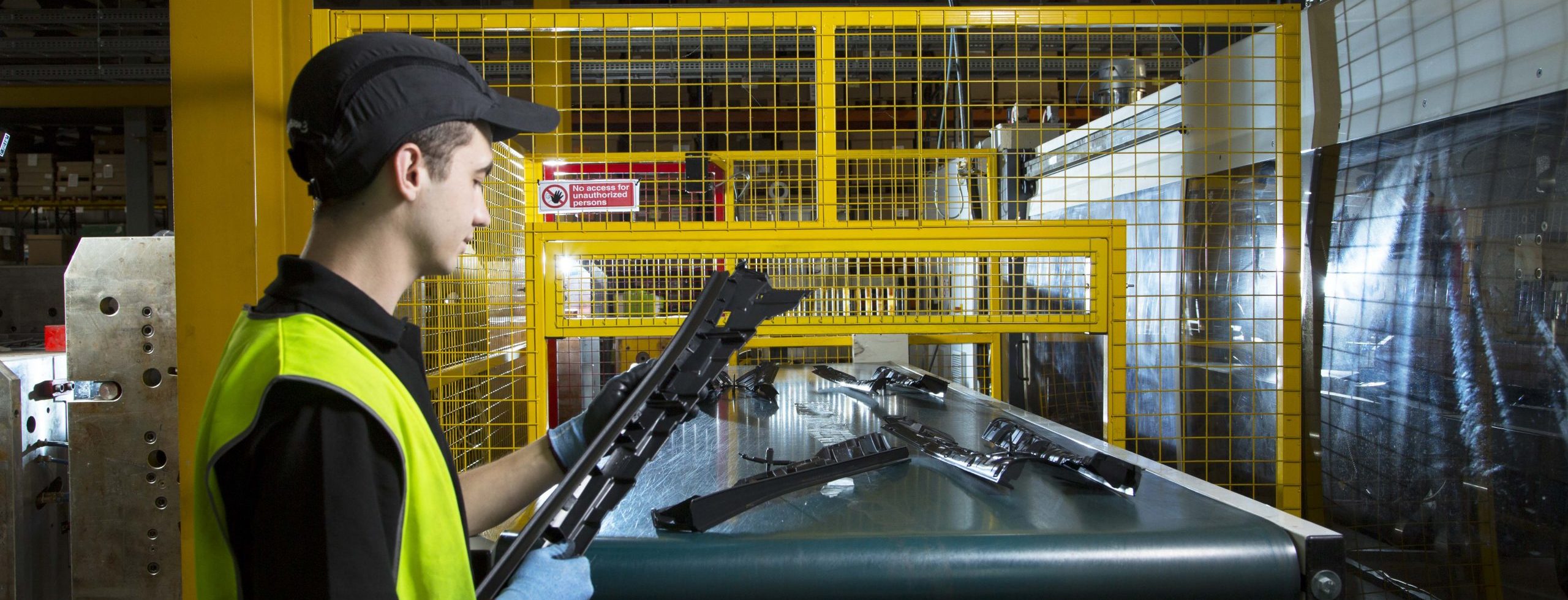We've put together a list of our most commonly asked questions. This list is not extensive so if you have any additional questions about our services then please get in touch.
Answer:
Plastic injection moulding is one of the most popular methods of manufacturing plastic components. This is because it allows for high quantities of identical items to be created in a short space of time.
An injection mould tool is created, and melted polymer (plastic) is injected into the mould. Once the plastic has filled the mould’s cavities, it is given time to cool within the mould. The mould tool is then opened, and the finished component ejected.
Answer:
Rapid tooling is a manufacturing process used when speed and time are of the essence. It allows you to create prototypes, or smaller batches of components, in a quicker, and often less costly, way using exact grades of materials. This means companies can create a physical version of their new designs quickly, which can be the difference between success and failure in today’s fast-moving world!
Answer:
Dependant on part complexity, we could manufacture tools that produce components weighing as little as 0.25 grams
Answer:
Our 1,300 Negri Bossi Vector moulding machine onsite at Signal Plastics is capable of manufacturing large parts up to 4,700g.
Answer:
We have 2 North East facilities in the UK, Omega Plastics is our 45,000 sq. ft site at Gateshead which provides the capabilities to deliver first-class tooling, moulding and assembly for our extensive portfolio of customers. The site features an impressive toolroom equipped with high precision toolmaking machinery and 15 plastic injection moulding presses, ranging from 30 to 300 tonne.
Signal Plastics is our 43,500 sq. ft site in Washington and houses overhead robotic equipment, 14 injection moulding presses ranging from 40 to 1,300 tonnes, and established assembly lines.
We also work with an offshore partner who specialise in the manufacture of tools weighing up to 12 tonnes, making this the most cost-effective choice for large scale, large size mouldings.
We encourage customers to visit our facilities where you can discuss your project in more detail with our team of experts.
Answer:
Yes, Omega Plastics Group has its own Quality Assurance team with CMM capabilities, this will be discussed with you at quote stage.
Answer:
It would depend on the complexity of your project and our available capacity at the time. We will always work with you to understand your project timings and objectives and will offer realistic project plans in order to achieve those.
Answer:
During our quoting phase our project managers will ask you about your material requirements. We can advise on the correct type, grade and colour of material for your components and discuss options for supply.
Answer:
In most cases, yes. Compatibility with our equipment will need to be assessed and retro fitted at cost where applicable. Get in touch with one of the team today to discuss your plastic injection moulding needs.
Answer:
We use thermoplastics such as PP, PC/ABS, PA, PBT, POM and ABS to produce prototype parts, get in touch with one of our project managers today to discuss all the options available to you.
Answer:
Dependant on the complexity of the component, a prototype aluminium tool will typical produce between 1,500 -5,000 shots (Mould Cycles).
Answer:
Our main software packages are Mastercam, Solidworks, Pro Engineer and Delcam.
Answer:
We can accept: PDF / Zip / IGS / DXF / PRT / MCX / CAT Part / STEP / X_T / SLDPRT
Answer:
We have an FTP site which we can accessed to transfer files too large for email – in the following file types: PDF / Zip / IGS / DXF / PRT / MCX / CAT Part / STEP / X_T / SLDPRT
Answer:
Within every tooling quotation that’s formally issued to the customer, we include 10 sample components for approval prior to higher volume production.
Answer:
Currently we don’t provide twin shot moulding, but we provide a manual transfer over moulding service which mimics twin shot – this can be cost effective for low volume prototype parts.
Our Clients
Some of the world's most recognised and established brands trust us to deliver - on spec, and on time:






© 2025 Omega Plastics Group unless stated otherwise
Delivered by Cargo Creative

